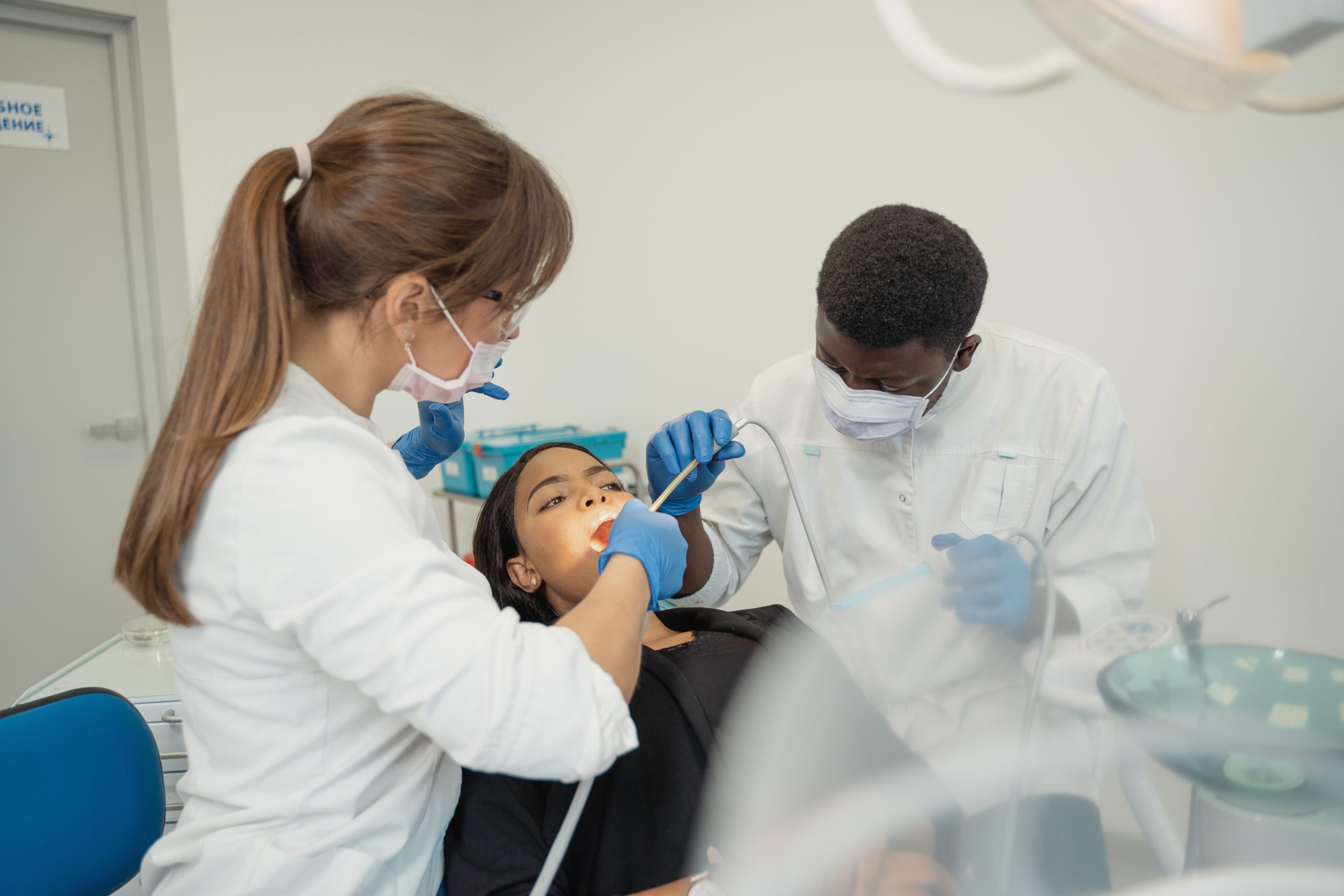5 Simple Things to Know About Becoming a Dental Office Assistant
When considering any career field, it is important to have an understanding of the logistics of the field: the average salary, what kind of tasks you will be doing, and the outlook in the job market. This knowledge will help you decide the best avenue to take with a specific career.
The Occupational Outlook Handbook is a great resource for looking up any career, and we have broken down the components of the Dental Office Assistant field.
Discover the ins and outs of this allied health sector and whether it is the right fit for you!
Dental Office Assistant Insights
Outlook and number of jobs: The Dental Office Assistant field is projected to grow 7% from 2019 to 2029, which is at a faster growth level than other occupations. The need for dental assistants will continue to increase as the demand for dental care increases, especially considering the baby-boomer population is aging and new research is being discovered on oral health and how to prevent issues from arising such as gum disease. As preventative care is growing, more patients will be scheduling yearly checkups with their dentists. Therefore, a need for office assistants will rise so that other clerical tasks can be completed and ensure dentists are able to meet with each patient.
Pay: The average pay is $41,180 a year as of May 2020. Dental Office Assistants who work in government settings made on average $44,940 while those in dental offices received on average $41,180 a year, and working in a physician’s offices averaged $38,600 a year.
What is it?: A Dental Assistant works closely with patients and dentists. They will gather information necessary to fill out a patient’s history and personal data, take a patient’s vital signs such as blood pressure/pulse, especially before any type of procedure, schedule follow-up appointments, put patient information in to their medical record, and ensure that all equipment is sanitized. Furthermore, they may be trained in using the x-ray machine and taking the x-rays for the dentist to review. In addition, it is crucial for Dental Assistants to understand the importance of abiding by HIPPA regulations as they are dealing with patient information.
Work environment: Most dental assistants work full time and interact with the dentists and hygienists on a daily basis. Some may be scheduled to work nights or weekends depending on the hours the facility is open. Their work attire will also include safety glasses, surgical masks, gloves, and protective clothing to ensure minimal risk for themselves and patients with the spread of infectious diseases.
Qualities Every Dental Office Assistant Should Possess
Detail Oriented—because you will be dealing with information and possible procedures or routines that can have serious consequences if completed incorrectly, it is imperative that you are able to focus to ensure accuracy and consistency.
Interpersonal Skills—it is important to remember that patients may come into the office with pain or discomfort, and it is your job to display a calm, professional, and encouraging manner when assisting them with information.
Listening Skills—to ensure patients’ information is filled out correctly and their needs are met, you must be able to understand what someone is conveying and interpret it correctly. It is also important to listen and interpret what a dental hygienist or dentist tells you about a patient’s condition or their dental needs to make sure treatment is correctly provided.
Becoming a Dental Office Assistant
Blackstone Career Institute’s online Dental Office Assistant includes a working knowledge and skills needed to run a dental office smoothly. Our dental office assistant program provides you with the latest information on operating a dental office and preparing you for the various tasks an administrative dental assistant may encounter. For example, students will learn up-to-date CDT-5 Dental Codes, new HIPAA and OSHA guidelines, along with practice administrative procedures such as entering patient data, posting payments and scheduling appointments.
Certification Matters
Graduates of Blackstone’s administrative dental assistant training program are eligible to sit for certification through the Dental Assisting National Board (DANB), along with two years of full-time or four years part-time as a dental assistant, and a CPR certification.













